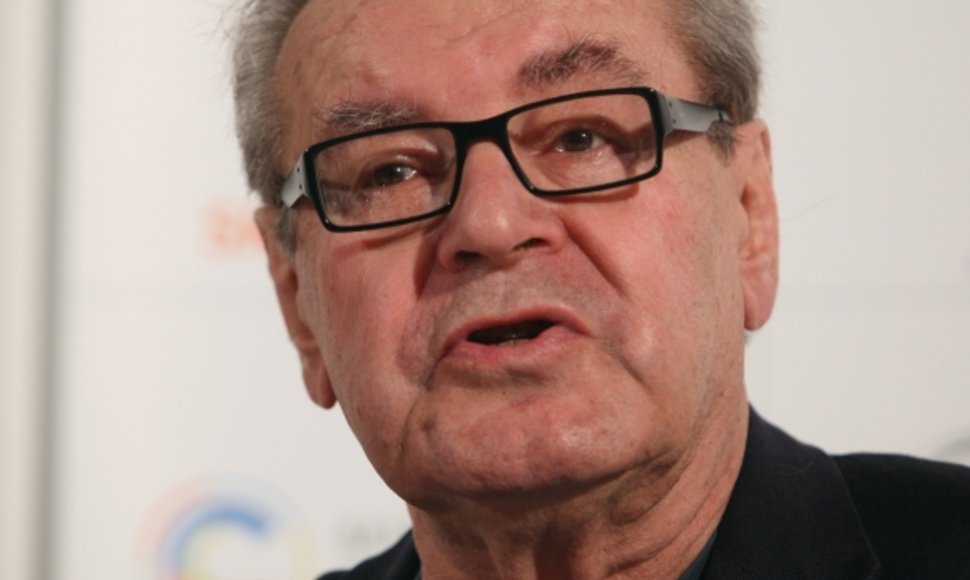A child of parents who perished in Nazi concentration camps, Forman – speaking at a recent director round-table in the US – started by explaining how this early trauma started to shape his life and career.
“It’s much easier to lose parents when you are a child than when you are an adult. Because when you are a child, you don’t really understand what is happening. The finality of life – you don’t comprehend it. Of course, after puberty then you realise. But after the war, I was very sheltered – people told me that parents were in a camp, a concentration camp. The only camp I knew was a Boy Scout camp. But of course it was only after the war that I realised the horror and tragedy. My career was a mixture of the tragedy and comedy what I saw around myself.”
After being expelled from his orphanage school, the young Forman went to Prague and eventually into film-making, becoming part of the so-called Czech New Wave of the 1960s, a rebel movement against the mainstream regime-sensitive Czech movies of the time.
“The reaction of all of us (film-makers) who stared in the early 60s was not to follow our idols, but it was a reaction to the stupidity and superficiality of the so-called Social-Realism movies. It was a wonderful period in one sense, because we were all in the same danger. We were also lucky because we were all so different. Chytilova was different to Passer, Passer was different to me, etc. There was no reason for competition or jealousy plus the establishment tried to squelch or suppress this film-making. An attack on one was an attack on all of us, so we really stuck together. Thanks to the reaction of our films abroad it was difficult for the authorities to pretend that this was something that could be dismissed. This is what saved us.”
But it was only a matter of time before his movies raised eyebrows within the communist regime - most notably “Fireman’s Ball”.
“It was briefly released in July 1968 and in August 1968 the Soviet Union invaded Czechoslovakia, and the film was banned officially forever! I was legally abroad – in the United States – when Russia invaded. I knew that having this film banned forever, I wouldn’t be able to continue work, unless I would conform and make some propaganda movies. So I decided to stay in the US and to emigrate.”
Forman set about re-establishing himself as a director in the US, adapting remarkably fast to the cultural differences - even embracing the flower power movement of the time. This, ironically, would lead to success with the movie, “Hair”.
“I was in New York for the film festival in 1967, and I saw the very first public production of “Hair”. I went backstage and I met (the lyricists) James Rado and Gerome Ragni – and I found out to my amazement that they knew my films – they knew “Loves of a Blonde”. I wanted to make the movie of “Hair.” ”
But before he could produce “Hair”, Forman was hired to direct the film that would lead to his first Oscar – “One Flew Over the Cuckoo’s Nest”
“When I got the offer to make One Flew Over the Cuckoo’s Nest, an American friend of mine told me “don’t touch it – it’s very dangerous. It’s such Americana, and you may not get it right. It is your first big film and it could flop.” I said “What are you talking about, Americana? For you it is a work of literature, it’s fiction. For me it was reality – I lived it! The communist party was my big nurse! What’s the difference?”
The film won Forman his first Best Director Oscar. His next one was to come for Amadeus, his masterpiece about the rivalry between composers Mozart and Salieri Filmed in Czechoslovakia in 1984, it was the first time that Forman had returned to his homeland since his emigration.
“It was very emotional when we went there to negotiate and to scout locations. However, when the work starts you have to put emotion aside and concentrate. There was great opposition in political circles against allowing me to shoot there, especially from the communist cell at Barrandov Studios. They wrote letters saying that they didn’t want me to shoot, but it was the Ministry of Finance that finally allowed me. Of course we were constantly under the surveillance of the secret police, which was okay because all we were doing was shooting a movie.”
After Amadeus, Forman was less prolific but awards still followed for films such as “Man on the Moon” and “Goya’s Ghosts”. Age, he says, has made him more choosy.
“When you are getting older, every film is two years of your life. So you think a bit more on what you want to spend two years of your life on. I feel that I haven’t stopped work at all, but for me it’s like my love just left me. So you are not emotionally ready to start another relationship.”
Continue reading at radio.cz












